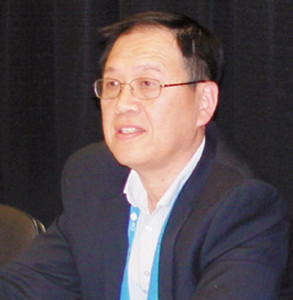
Bo Hang
Retiree Affiliate
Biological Systems and Engineering
- BioEngineering & BioMedical Sciences
Building: 977, Room 0237
Mail Stop: 977-225
Phone: (510) 495-2537
Fax: (510) 486-6488
Bo_Hang@lbl.gov
Programs & Initiatives
Research Interests
The research interests in my lab are primarily centered in the field of DNA damage and repair, particularly the identification and repair of novel and/or biologically important bulky DNA adducts, and the implications for exposure biomarkers and disease mechanisms. Our primary research over the past 25 years has been focused on combining chemical, biochemical and biological approaches to understand the key questions in environmental mutagenesis and carcinogenesis.
One of our current research focuses is on the genotoxicity and carcinogenic potential of thirdhand smoke (THS), a newly discovered source of tobacco toxins. THS contains residual tobacco smoke compounds that remain on indoor surfaces and in dust after tobacco has been smoked, or are re-emitted back into the gas phase. Moreover, some chemicals in THS react with oxidants and other pollutants in the environment to produce secondary toxicants (EHP, 2011). We have shown, for the first time, that THS as well as its unique constituent NNA cause DNA strand beaks and oxidative damage in human genes (Mutagenesis, 2013). Most recently, our studies indicated that short-term early life exposure to THS induces lung cancer in A/J mice (Clin Sci (Lond), 2018). These findings were highlighted by prominent coverage in mainstream media as well as used by the California State Assembly (Associated Press, 2014) and New York State to approve legislation targeting THS in home-based daycare centers.
We are continuing our effort on the identification and characterization of THS-derived DNA adducts and other biochemical alterations (such as metabolic and blood component changes) using in vitro to cellular and to animal systems. Our goal is to develop novel/unique mechanism-based biomarkers for assessing exposure to THS and to investigate the interplay between genetic susceptibility and THS carcinogenicity which still remains unknown. We believe that the data on “signature” changes obtained from the above experiments using next generation toxicological assessment approaches will have important implications in THS-related mechanistic and biomarker research.
We have been involved in cancer biology and genetic studies, especially the use of bioinformatics to discover mechanisms for cancer development by environmental carcinogens as well as to explore genetic biomarkers for exposure and clinical outcomes such as prognosis. For example, in collaboration with Drs. Jian-Hua Mao and Antoine Snijders at LBNL, we studied the expression profiling of human FAM83 family oncogenes in cancer development and progression. These studies could be critical in developing new therapeutic strategies targeting FAM83 genes or their interactions with other key proteins. Most recently, we developed a multi-step integrative meta-analysis of human cancer genome and identified 53-gene and 27- gene signatures and their prognostic scoring systems that can assess survival of gastric cancer and lung cancer, respectively. We will continue working in such a field of precision cancer medicine, in conjunction with precision toxicology.



